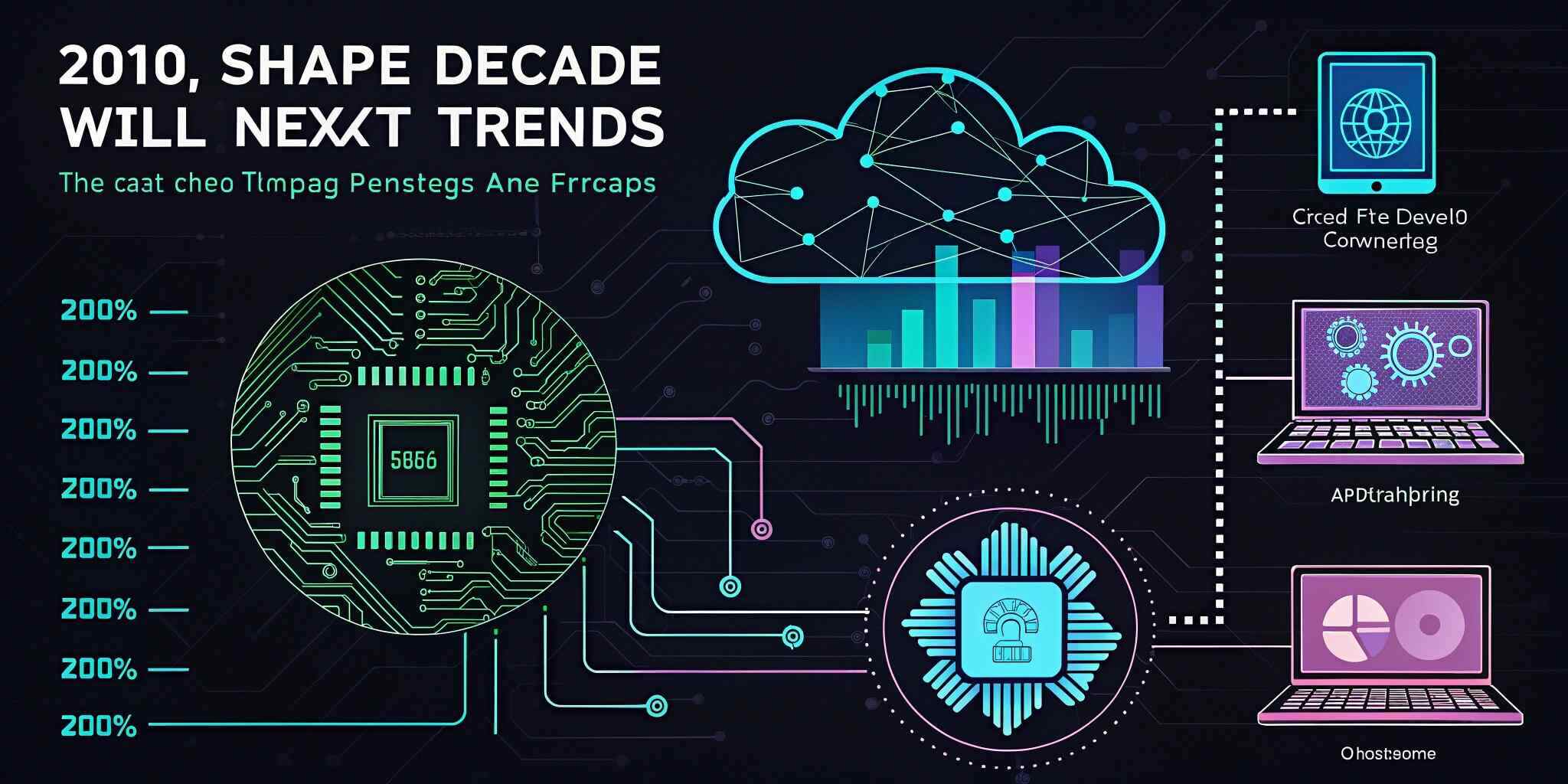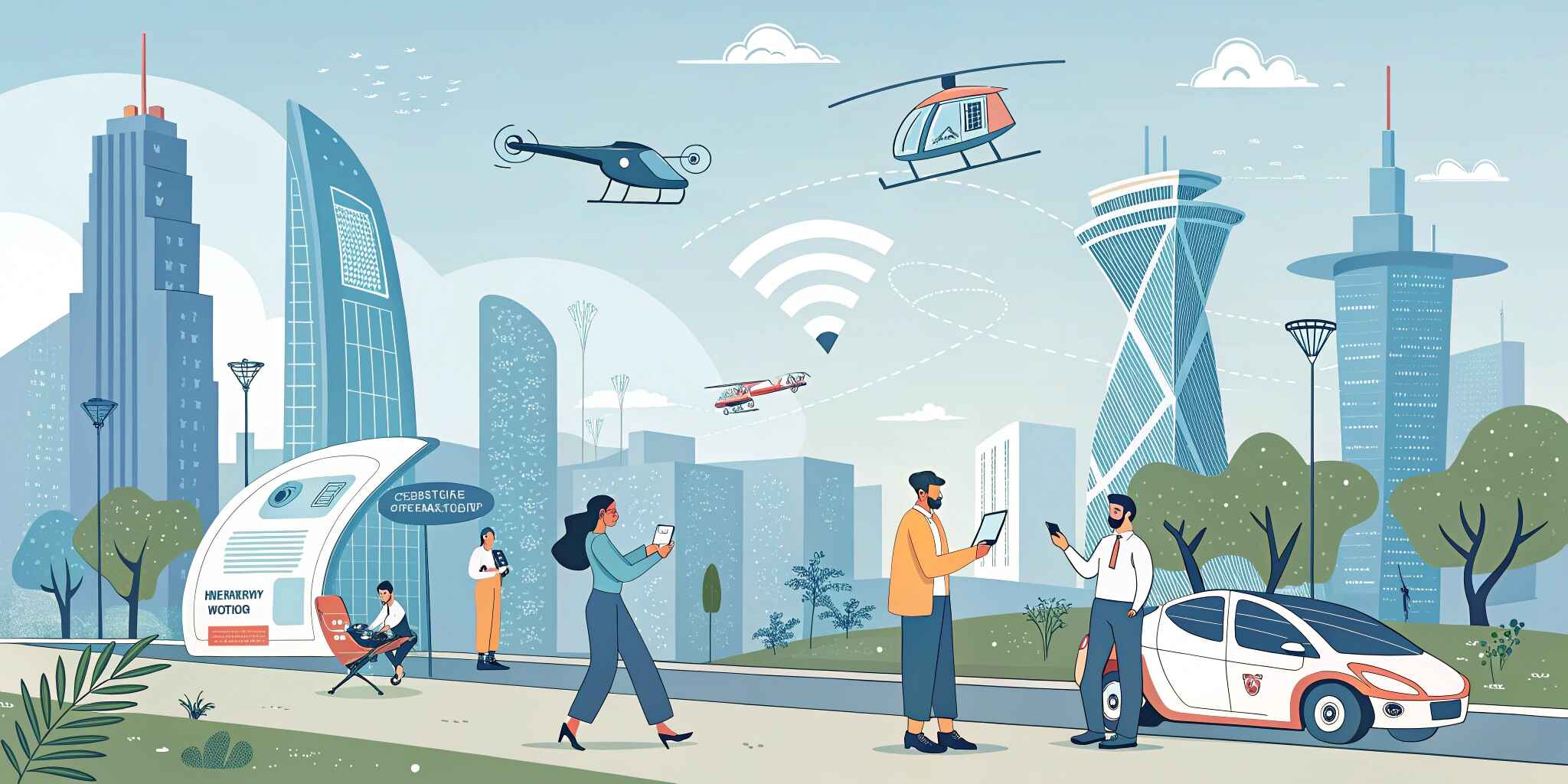The world of Information Technology (IT) is evolving faster than ever. As we move into a new decade marked by rapid innovation and digital transformation, several technologies are poised to redefine the way we live, work, and communicate. From Artificial Intelligence (AI) to quantum computing, these emerging trends will not only disrupt industries but also create new opportunities for businesses and individuals worldwide.
1. Artificial Intelligence and Machine Learning Revolution
Artificial Intelligence (AI) continues to dominate the IT landscape. Over the next decade, AI will become even more integrated into business processes, healthcare, education, and everyday life. Machine Learning (ML) will enhance automation, improve decision-making, and personalize user experiences. Predictive analytics, natural language processing, and AI-driven automation will become standard in most industries.
In addition, the rise of Generative AI and advanced neural networks will revolutionize content creation, customer service, and data analysis—making AI not just a support tool but a key business driver.
2. Quantum Computing: The Next Frontier
Quantum computing represents the next major leap in computational power. Unlike traditional computers, which process data in bits, quantum systems use qubits—enabling exponentially faster calculations. In the next decade, quantum computing is expected to revolutionize fields like cryptography, logistics, materials science, and drug discovery.
Major companies like IBM, Google, and Intel are investing heavily in quantum research, aiming to make quantum technology accessible for commercial applications. This breakthrough will redefine problem-solving capabilities in industries that depend on massive data processing.
3. The Expansion of 5G and Beyond
The rollout of 5G technology is transforming global connectivity. With ultra-fast internet speeds and low latency, 5G is enabling innovations like autonomous vehicles, smart cities, and immersive augmented reality (AR) experiences. Over the next decade, 5G will support billions of connected devices, driving the growth of the Internet of Things (IoT).
Furthermore, research into 6G networks is already underway, promising even faster speeds and more reliable communication—laying the foundation for future innovations in robotics, healthcare, and remote work.
4. Rise of Edge Computing
While cloud computing has dominated for years, edge computing is emerging as the next evolution. Instead of processing data in centralized cloud servers, edge computing processes information closer to the source. This results in faster response times, reduced bandwidth usage, and improved security.
As IoT devices multiply, edge computing will become essential for real-time data analysis—especially in autonomous vehicles, smart manufacturing, and healthcare systems.
5. Strengthening Cybersecurity and Data Privacy
As digital transformation accelerates, so do cyber threats. The next decade will witness a stronger emphasis on cybersecurity and data protection. AI-powered threat detection, zero-trust security models, and biometric authentication will become essential components of IT infrastructure.
Governments and organizations will invest heavily in privacy regulations, encryption technologies, and risk mitigation frameworks to safeguard sensitive data in an increasingly connected world.
6. Blockchain Beyond Cryptocurrency
While blockchain is widely known for powering cryptocurrencies, its real potential extends far beyond finance. Over the next decade, blockchain will revolutionize supply chain management, digital identity verification, healthcare, and voting systems.
Its decentralized nature ensures transparency, traceability, and data integrity—making it a key technology for industries prioritizing security and accountability.
7. Metaverse and Extended Reality (XR)
The Metaverse is emerging as the next digital frontier, combining virtual reality (VR), augmented reality (AR), and mixed reality (MR). IT will play a central role in developing immersive virtual environments where people can work, socialize, and shop.
As hardware improves and connectivity strengthens, the Metaverse will evolve from a concept into a functioning digital ecosystem that integrates seamlessly with our physical world.
8. Sustainable IT and Green Technology
With rising concerns about climate change, sustainability is becoming a key IT priority. The next decade will see growth in green data centers, energy-efficient hardware, and environmentally responsible IT infrastructure. Companies will adopt renewable energy solutions and carbon-neutral cloud systems to minimize their environmental footprint.
9. Automation and Hyperautomation
Automation has already streamlined repetitive tasks, but the future belongs to hyperautomation—the combination of AI, robotic process automation (RPA), and analytics. This will enable businesses to automate complex workflows, improve accuracy, and increase productivity at scale.
10. The Human-Tech Balance
Despite technological progress, human creativity and ethics will remain at the core of IT development. The next decade will emphasize ethical AI, digital inclusion, and upskilling to ensure technology empowers rather than replaces people.
Conclusion
The next decade of IT will be defined by transformation, innovation, and interconnectivity. From AI and quantum computing to sustainable technologies, these trends will shape the future of work, society, and global progress. Organizations that embrace these advancements early will gain a competitive edge in an increasingly digital world.
As we step into this new era, one thing is certain—the IT revolution is far from over. It’s only accelerating.


